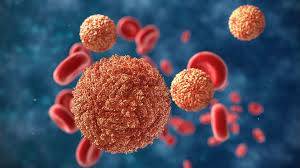A Comprehensive Guide on How to Prevent Zika Virus
Introduction
The Zika virus, first identified in the Zika Forest of Uganda in 1947, gained global attention in 2015 when it spread rapidly through the Americas. This mosquito-borne virus, primarily transmitted by the Aedes species of mosquitoes, poses significant health risks, particularly to pregnant women and their unborn children. While Zika virus infections often result in mild symptoms or even no symptoms at all in most individuals, its association with severe birth defects such as microcephaly and other neurological complications makes prevention crucial. In this comprehensive guide, we'll delve into effective strategies for preventing Zika virus transmission, safeguarding communities, and promoting public health.
Understanding Zika Virus Transmission
To effectively prevent Zika virus transmission, it's essential to understand how the virus spreads. The primary mode of transmission is through the bite of infected Aedes mosquitoes, namely Aedes aegypti and Aedes albopictus. These mosquitoes are commonly found in tropical and subtropical regions, thriving in areas with stagnant water sources where they breed.
Apart from mosquito bites, Zika virus can also spread through:
1. Sexual Transmission: Zika virus can be transmitted through sexual contact with an infected person, even if they are asymptomatic. This mode of transmission has implications for both prevention and reproductive health practices.
2. Maternal-Fetal Transmission: Pregnant women infected with Zika virus can pass the virus to their unborn babies, leading to congenital Zika syndrome, characterized by severe birth defects.
3. Blood Transfusion: Although rare, Zika virus can be transmitted through blood transfusions from infected donors.
Given these modes of transmission, a multifaceted approach is necessary to effectively prevent Zika virus infections and mitigate its impact on public health.
Preventive Measures for Zika Virus
1. Mosquito Control:
- Eliminate breeding sites: Remove stagnant water sources such as containers, tires, and flower pots where mosquitoes breed.
- Use larvicides: Treat standing water with larvicides, which kill mosquito larvae and prevent them from developing into adults.
- Install screens: Use window and door screens to prevent mosquitoes from entering homes and buildings.
- Mosquito repellents: Apply EPA-approved insect repellents containing DEET, picaridin, or oil of lemon eucalyptus to exposed skin.
- Wear protective clothing: Cover exposed skin with long-sleeved shirts, pants, and hats, especially during peak mosquito activity times.
2. Safe Sexual Practices:
- Condom use: Consistently and correctly use condoms during sexual activity, especially if either partner has recently traveled to an area with ongoing Zika virus transmission.
- Abstain or delay pregnancy: Consider abstaining from sexual activity or delaying pregnancy if living in or traveling to areas with Zika virus transmission, particularly for couples at higher risk, such as those with a pregnant partner.
3. Maternal Health Measures:
- Prenatal care: Pregnant women should attend regular prenatal care visits, during which healthcare providers can provide guidance on Zika virus prevention and monitor fetal development.
- Avoid travel to high-risk areas: Pregnant women should avoid traveling to regions with ongoing Zika virus transmission to reduce the risk of infection.
4. Blood Safety Measures:
- Screening of blood donors: Blood collection agencies should implement screening measures to identify and defer potential donors who have traveled to or reside in areas with Zika virus transmission.
- Pathogen inactivation: Implement pathogen inactivation techniques to reduce the risk of Zika virus transmission through blood transfusions.
Community Engagement and Education:
- Public awareness campaigns: Conduct educational campaigns to inform communities about Zika virus transmission, prevention strategies, and the importance of community involvement in mosquito control efforts.
- Engage community leaders: Collaborate with community leaders, local organizations, and healthcare providers to disseminate information and promote preventive measures.
- School-based initiatives: Integrate Zika virus education into school curricula to raise awareness among children and adolescents, empowering them to take preventive actions and disseminate information within their families and communities.
Research and Innovation:
- Vaccine development: Support research efforts to develop vaccines against Zika virus, which could provide long-term protection and reduce the risk of outbreaks.
- Vector control technologies: Invest in innovative mosquito control technologies, such as genetically modified mosquitoes or novel insecticides, to complement existing strategies and enhance effectiveness.
Global Cooperation and Surveillance:
- International collaboration: Foster collaboration among countries, international organizations, and public health agencies to share information, resources, and best practices for Zika virus prevention and control.
- Enhanced surveillance: Strengthen surveillance systems to monitor Zika virus transmission, track cases, and detect outbreaks early, enabling prompt response measures.
Conclusion
Preventing Zika virus transmission requires a coordinated, multifaceted approach that addresses various modes of transmission and engages communities, healthcare providers, policymakers, and researchers. By implementing effective mosquito control measures, promoting safe sexual practices, supporting maternal health initiatives, ensuring blood safety, and fostering community engagement and education, we can reduce the burden of Zika virus infections and protect vulnerable populations, including pregnant women and their unborn children. Continued investment in research, innovation, global cooperation, and surveillance is essential to sustain efforts in preventing Zika virus transmission and safeguarding public health worldwide.




No comments yet
Be the first to share your thoughts!